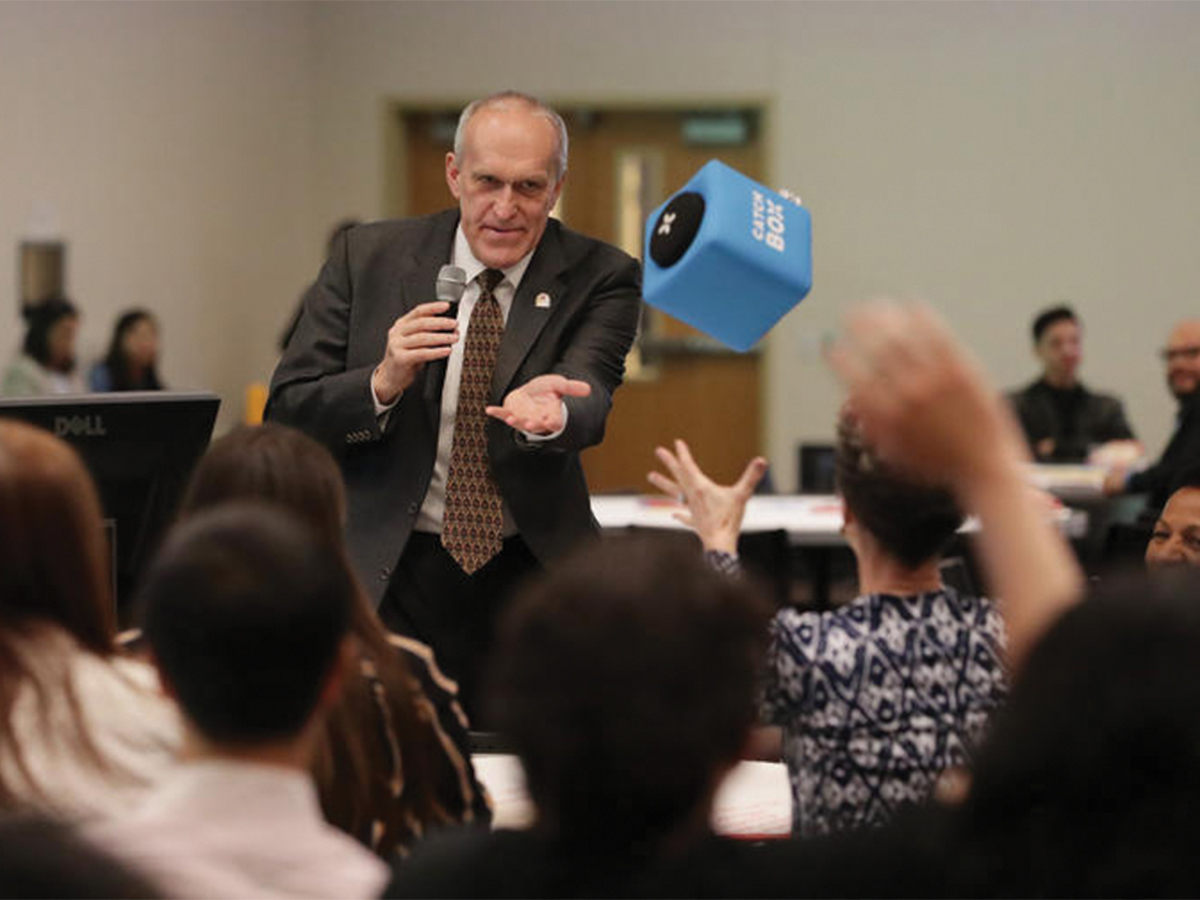On Thursday, April 11 UCR Chancellor Kim Wilcox held a one hour town hall with members of the university community in HUB 302 to discuss the progress made towards the Year 2054 goals for sustainable development that focus on assessing community needs as well as other ideas that attendees wanted to share to improve current programs and services on campus. Approximately 80 people attended the event, including professors, students, police officers, campus workers and other educational specialists.
The Chancellor began the meeting by acknowledging the amount of success the university has had within the last couple of years. “UCR is now number one in terms of graduating Pell Grant recipient students,” Wilcox announced. “This is a stunning achievement that continues to ensure that we are on track to meet our academic success goals in the decades ahead.”
Other issues discussed included the ethnic diversity of the campus population. “Currently, 84 percent of students at UCR are people of color,” said Wilcox. “However, we absolutely have more room to improve when it comes to faculty positions, an area where racial diversity is not as pronounced.” The Chancellor expressed optimism that more non-white professors will be hired in the coming years, from both domestic and international sources.
“UCR saw the biggest jump in the U.S. News and World Report rankings last year,” Wilcox added. “About 100 years ago, UCLA was actually known as the ‘southern branch’ of the UC campus system. Today, it has surpassed UC Berkeley in the annual rankings. Just imagine the potential UCR has when we pass our 100 year anniversary.”
Finally, the Chancellor asked attendees, all of whom were assigned to about a dozen tables, to work in groups and to discuss their respective visions for UCR 2054 as the university celebrates its centennial anniversary. “Just thirty years ago, my biggest hurdle with technology was alternating between the keyboard and the mouse,” Wilcox stated, referring to an image of the first Apple computer on the PowerPoint presentation. “Technology has grown so quickly over the last few decades, and it’s amazing to imagine what kind of new resources the university will require in the next 30 years.”
During the townhall session, students, faculty and community members asked questions about various challenges that the university continues to face. A professor expressed interest in having more research opportunities and publication sites become available to faculty and grad students on campus. The Chancellor also agreed about the importance of ensuring more awareness and access to the variety of research areas the university currently offers.
Another student brought up concerns that the Middle Eastern Student Center’s current location in the HUB was inconvenient because it was isolated from the other ethnic minority departments, including the African Student Programs, the Chicano Student Programs and the Asian Pacific Student Programs. The chancellor offered to look into the issue and to take into consideration the requests to relocate MESC.
After the question and answer session, the university provost, Dr. Cynthia Larive, gave a brief presentation to conclude the town hall by further emphasizing the campus development goals with regard to Year 2054. Issues that were mentioned included increasing research in green energy technology and strengthening UCR’s continued specialization in agritech.








